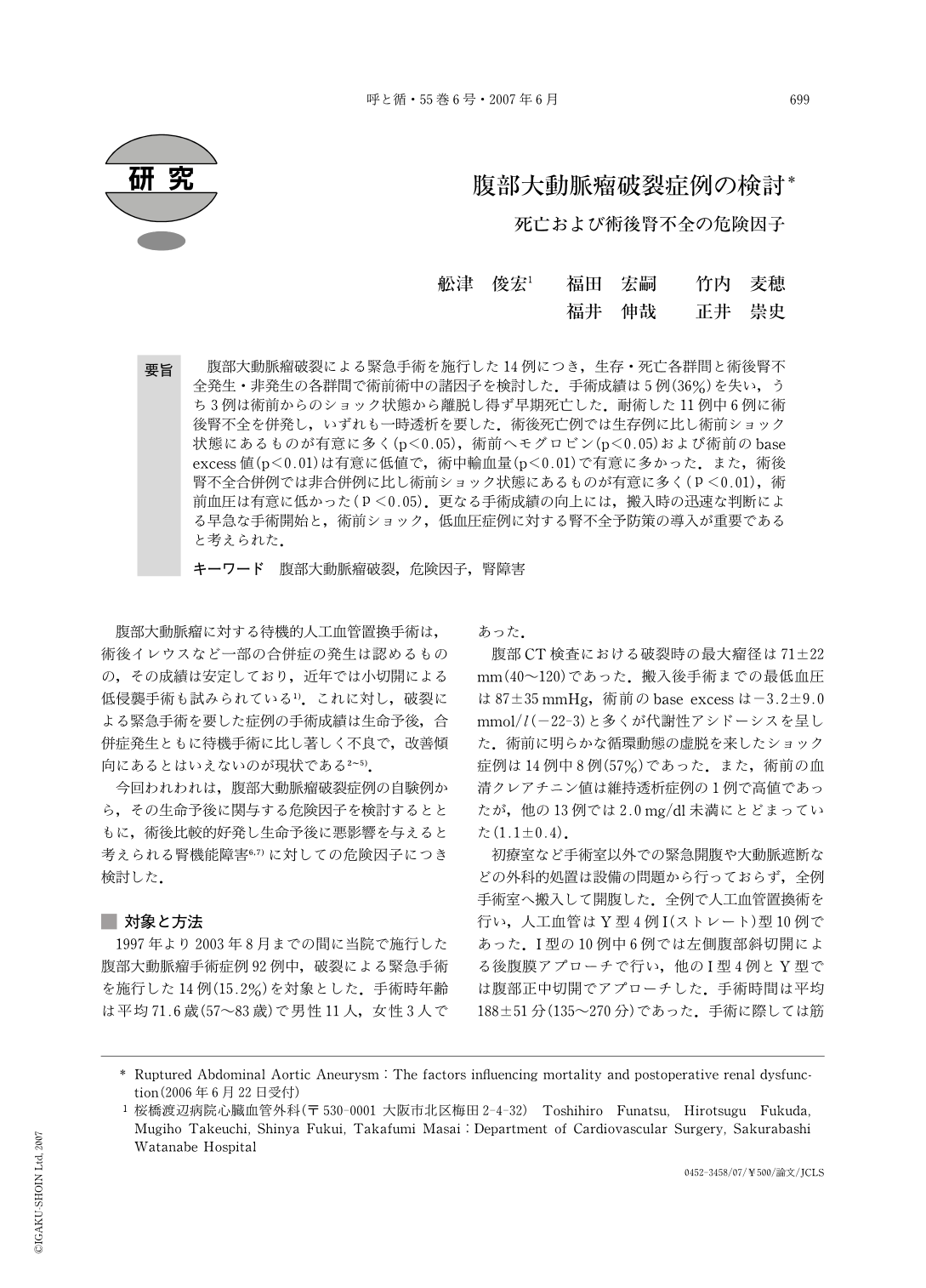Japanese
English
- 有料閲覧
- Abstract 文献概要
- 1ページ目 Look Inside
- 参考文献 Reference
要旨 腹部大動脈瘤破裂による緊急手術を施行した14例につき,生存・死亡各群間と術後腎不全発生・非発生の各群間で術前術中の諸因子を検討した.手術成績は5例(36%)を失い,うち3例は術前からのショック状態から離脱し得ず早期死亡した.耐術した11例中6例に術後腎不全を併発し,いずれも一時透析を要した.術後死亡例では生存例に比し術前ショック状態にあるものが有意に多く(p<0.05),術前ヘモグロビン(p<0.05)および術前のbase excess値(p<0.01)は有意に低値で,術中輸血量(p<0.01)で有意に多かった.また,術後腎不全合併例では非合併例に比し術前ショック状態にあるものが有意に多く(p<0.01),術前血圧は有意に低かった(p<0.05).更なる手術成績の向上には,搬入時の迅速な判断による早急な手術開始と,術前ショック,低血圧症例に対する腎不全予防策の導入が重要であると考えられた.
To evaluate the prognostic factors associated with mortality and postoperative renal dysfunction, we reviewed fourteen consecutive cases of emergency surgery for ruptured abdominal aortic aneurysms. Five patients died postoperatively and the hospital mortality rate was 36%. Three of the patients died from systemic shock within a week. Renal dysfunction occurred in six patients and was treated with continuous hemofiltration. Shock status on arrival, preoperative lower hemoglobin, lower base excess, and more usage of blood product during operation were significantly associated with mortality. Preoperative shock and hypotension were estimated to be significant risk factors of postoperative renal failure. These results suggested the need for early diagnosis and initiation of surgery. Pre-and intra-operative management for hypotension and oliguria to avoid subsequent renal dysfunction seem to be important and might contribute to the reduction of mortality and morbidity.

Copyright © 2007, Igaku-Shoin Ltd. All rights reserved.


